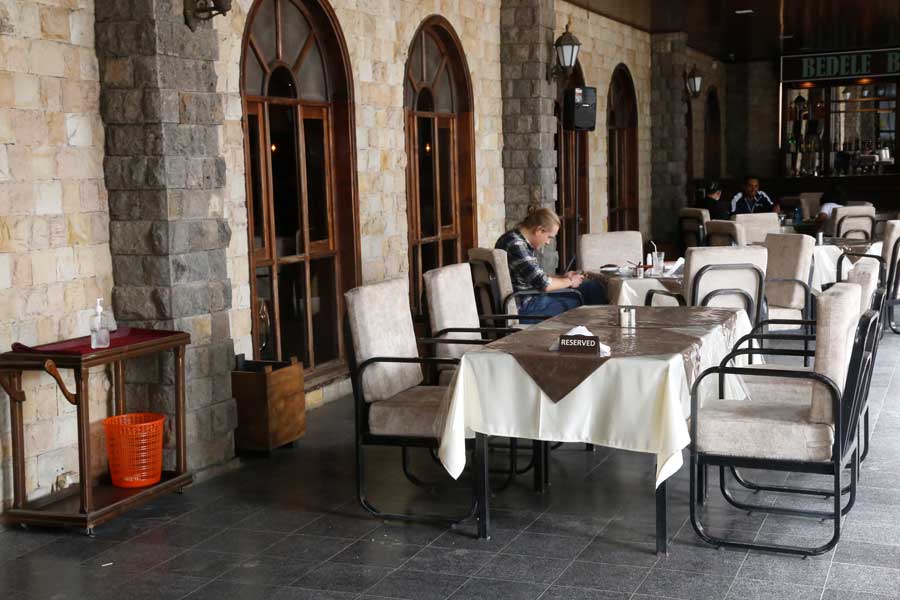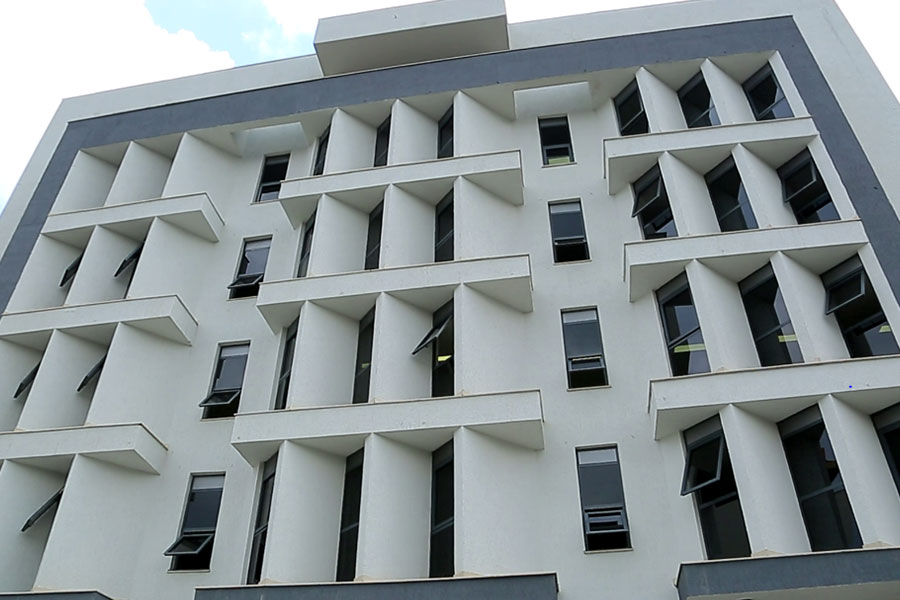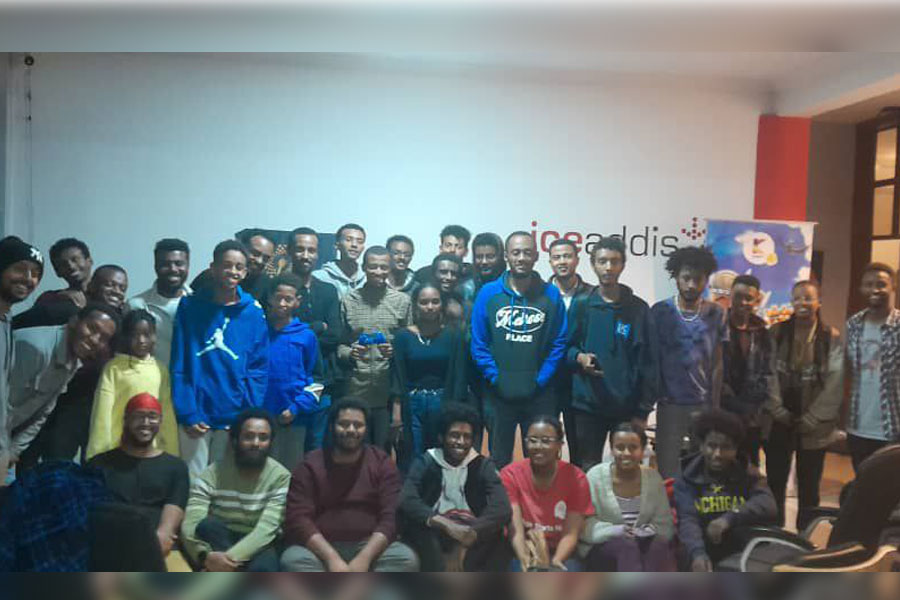
Radar | Jan 21,2023
Businesses involved in the import and assembly of solar technologies will soon receive duty tax adjustments based on the new tariff book released by the Ministry of Finance.
Effective next month, the adjustment is a part of the country's universal electrification plan, kicked off three years ago to boost access in areas not connected to the national power grid. It applies to stand-alone solar solutions, energy systems completely independent of grid structures, to convert battery energy into usable power.
Expected to encourage players in the solar market and create employment for more than 50,000 people by incentivising assembly plants, the measure aims to provide power to 9.2 million households, accounting for 35pc of the country's population. This requires an investment of 1.7 billion Br, according to a study published by Precise Consult Plc this year.
The tax adjustments are mainly to encourage the local assemblers of solar panels and accessories, according to Mulay Weldu, director of tax policy at the Ministry of Finance.
"Achieving universal electrification is something that can't wait," Mulay told Fortune. "This is not possible without local companies incentivised to fill the gap."
Importers of solar panels were subject to non-uniform duties as customs offices found it difficult to classify products in a specific category. As the technology evolved and new products were imported, the task became more difficult, says Tewabech Worke, general manager of the Ethiopian Solar Energy Development Association, with 27 permanent members and 138 partner distributors.
Some could import solar systems and appliances duty-free, others paid duty on appliances while importing the system for duty-free, while others paid duties for both.
The confusion was also a major setback for authorities attempting to achieve the second version of the National Electrification Plan, which aspires to see one million solar products distributed over three and half years. This is higher than what has been achieved thus far, as 800,000 stand-alone solar products have been imported and distributed by 29 approved retailers, providing energy services to more than three million Ethiopians in the last three years.
The old system has been discouraging for many businesses with a potential to invest in the sector, said Tewabech.
To buck the trend, equipment and machines imported to create means of income for off-grid areas, such as use in solar-powered irrigation, are to be fully exempted from tax, according to the new tariff book. The tariff book released two weeks ago has been in the works for more than half a year to standardise imported products and introduce new duty rates especially catered to manufacturing and agriculture. Products that had previously not been assigned a code used to determine duty have been included, while some have received a reduction. These include lanterns and lamps that generate power from solar energy sources and are subjected to 20pc duty. It is now reduced to five percent.
Training for customs officers was conducted two weeks ago, briefing them on how to calculate duty on solar products based on the tariff book, according to Eden Fenta, country manager of African Clean Energy, an organisation working on the development of renewable energy, in partnership with the Ethiopian Energy Authority. The Solar Energy Development Association has also prepared a handbook to be used as a guide to identify products and impose duties accurately.
With close to half the population unconnected to electric power, the rise of off-grid solutions is welcomed by industry insiders.
"The customs tariff revision is positive for the sector, especially for local assemblers," said Ahmedin Ahmed, programme manager of Off-Grid Energy Innovation at Precise Consult.
It is estimated manufacturing domestically can save up to 25pc of foreign currency spent on imports.
The solar technology sector received much-needed attention after a task force comprising the Ministry of Water, Irrigation & Energy, African Clean Energy, the Energy Market Accelerator Program launched by Precise Consult, and the Ethiopian Solar Energy Development Association, conducted assessments to identify methods to grow the manufacture, import and use of solar energy products. One of the conclusions drawn from the study conducted by the task force was the need to encourage the manufacturing and assembly plants, which currently number less than 10.
The existing manufacturing plants that import inputs such as cables and packaging are subject to duty, adding to their costs. These items are taxed based on the assumption that local manufacturers produce cables that can be used for solar manufacturing, though what they utilise is not produced locally. The Association and others are in talks with the Customs Commission to address the issue, according to Tewabech.
Adjustments on customs duty alone would not solve the problems, says Ahmedin. It has to be supported by access to finance and the provision of foreign currency.
The World Bank had availed 40 million dollars worth of credit facility through the Development Bank of Ethiopia (DBE), although the funds were depleted in 2019. Another round of facilities is expected to take hold soon, discloses a World Bank document published in 2019.
PUBLISHED ON
Aug 28,2021 [ VOL
22 , NO
1113]

Agenda | Sep 27,2020

Fortune News | Jan 02,2021

Agenda | Jul 28,2024

Fortune News | Aug 15,2022

Viewpoints | May 13,2023

Dec 22 , 2024 . By TIZITA SHEWAFERAW
Charged with transforming colossal state-owned enterprises into modern and competitiv...

Aug 18 , 2024 . By AKSAH ITALO
Although predictable Yonas Zerihun's job in the ride-hailing service is not immune to...

Jul 28 , 2024 . By TIZITA SHEWAFERAW
Unhabitual, perhaps too many, Samuel Gebreyohannes, 38, used to occasionally enjoy a couple of beers at breakfast. However, he recently swit...

Jul 13 , 2024 . By AKSAH ITALO
Investors who rely on tractors, trucks, and field vehicles for commuting, transporting commodities, and f...

Oct 11 , 2025
Ladislas Farago, a roving Associated Press (AP) correspondent, arrived in Ethiopia in...

Oct 4 , 2025
Eyob Tekalegn (PhD) had been in the Governor's chair for only weeks when, on Septembe...

Sep 27 , 2025
Four years into an experiment with “shock therapy” in education, the national moo...

Sep 20 , 2025
Getachew Reda's return to the national stage was always going to stir attention. Once...